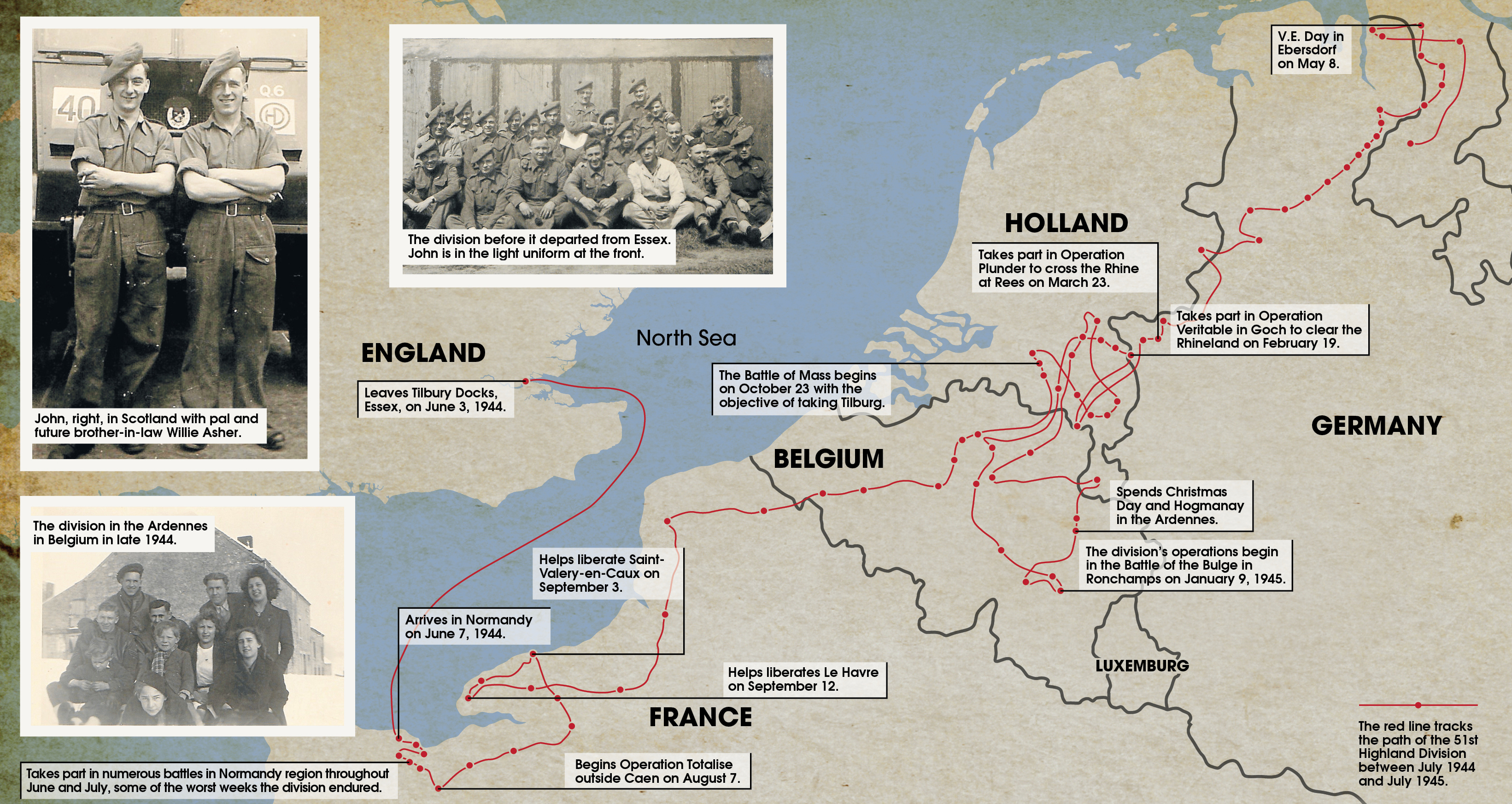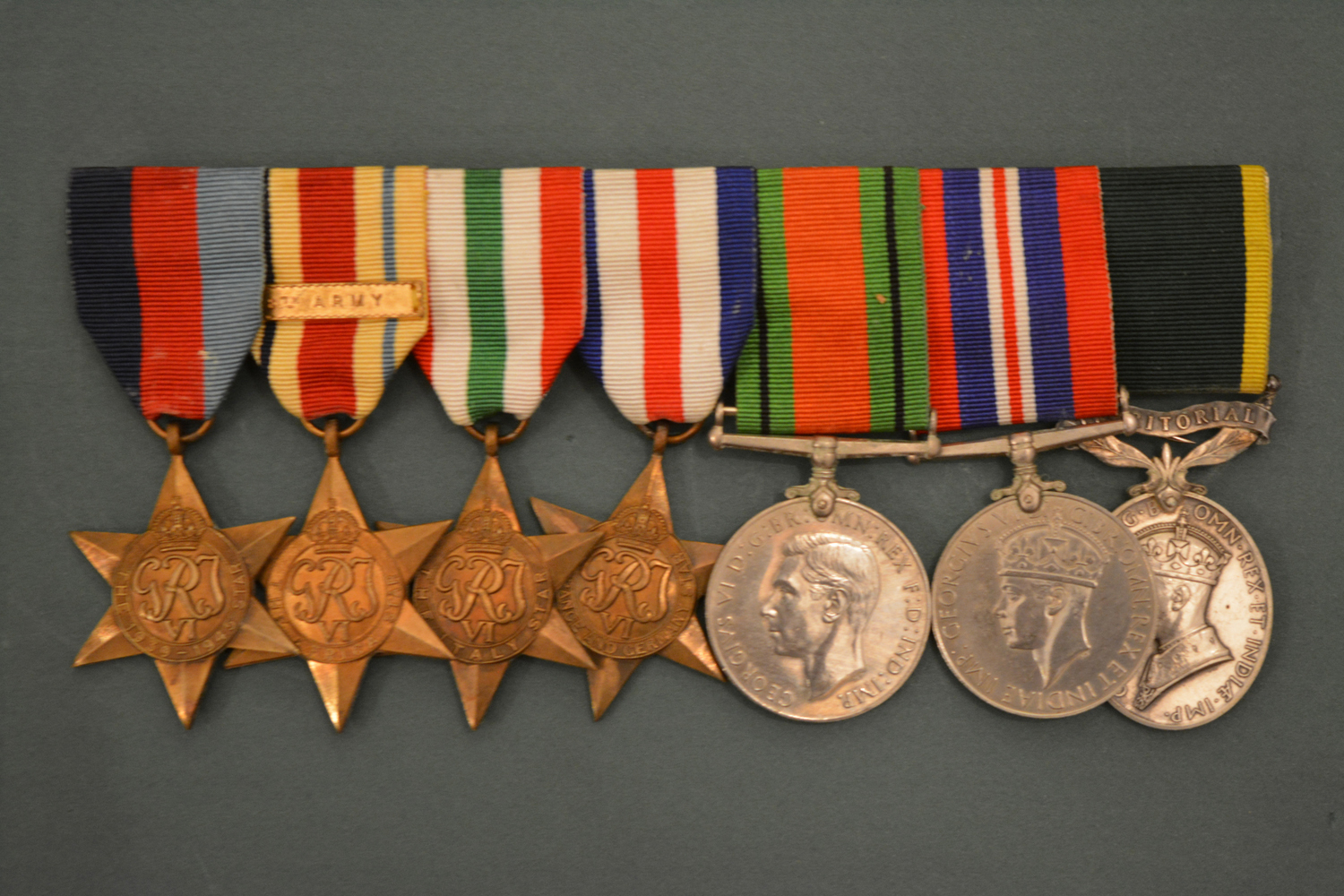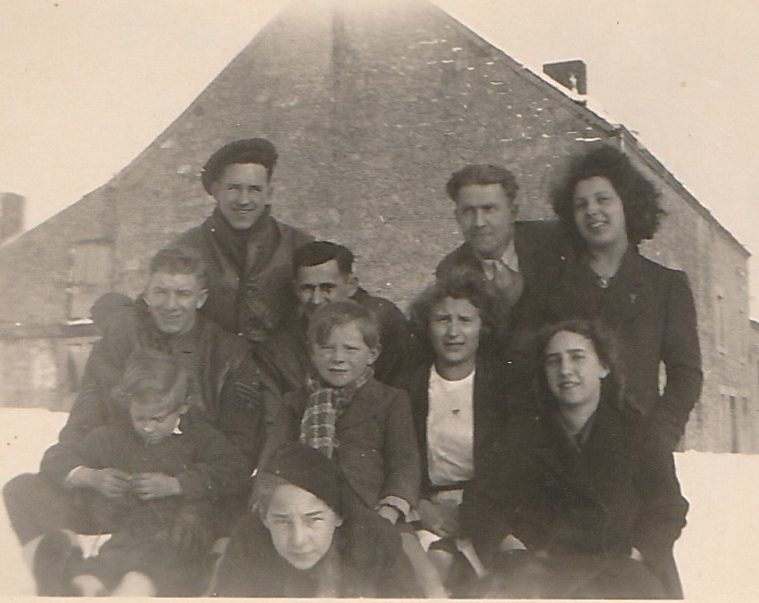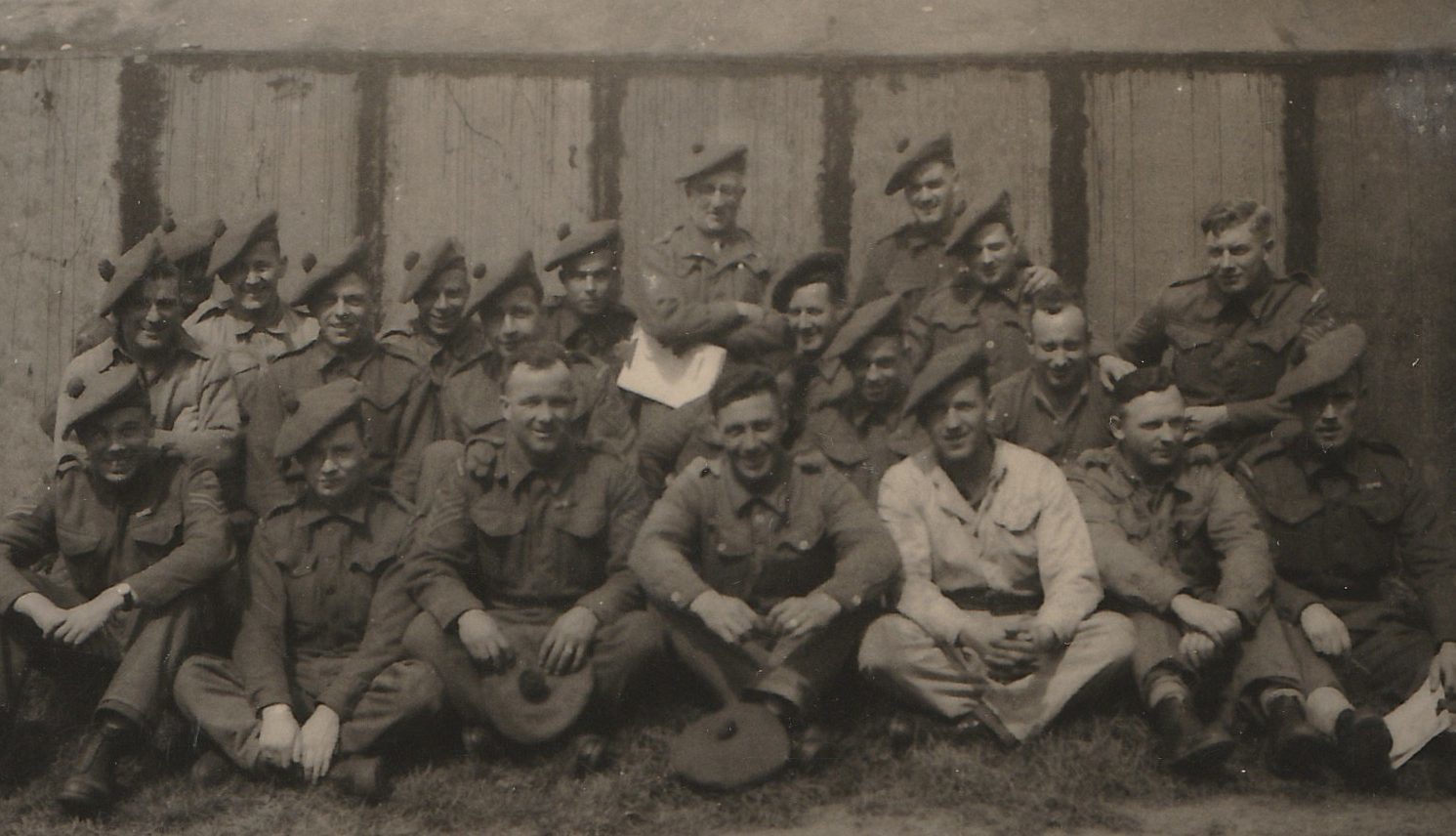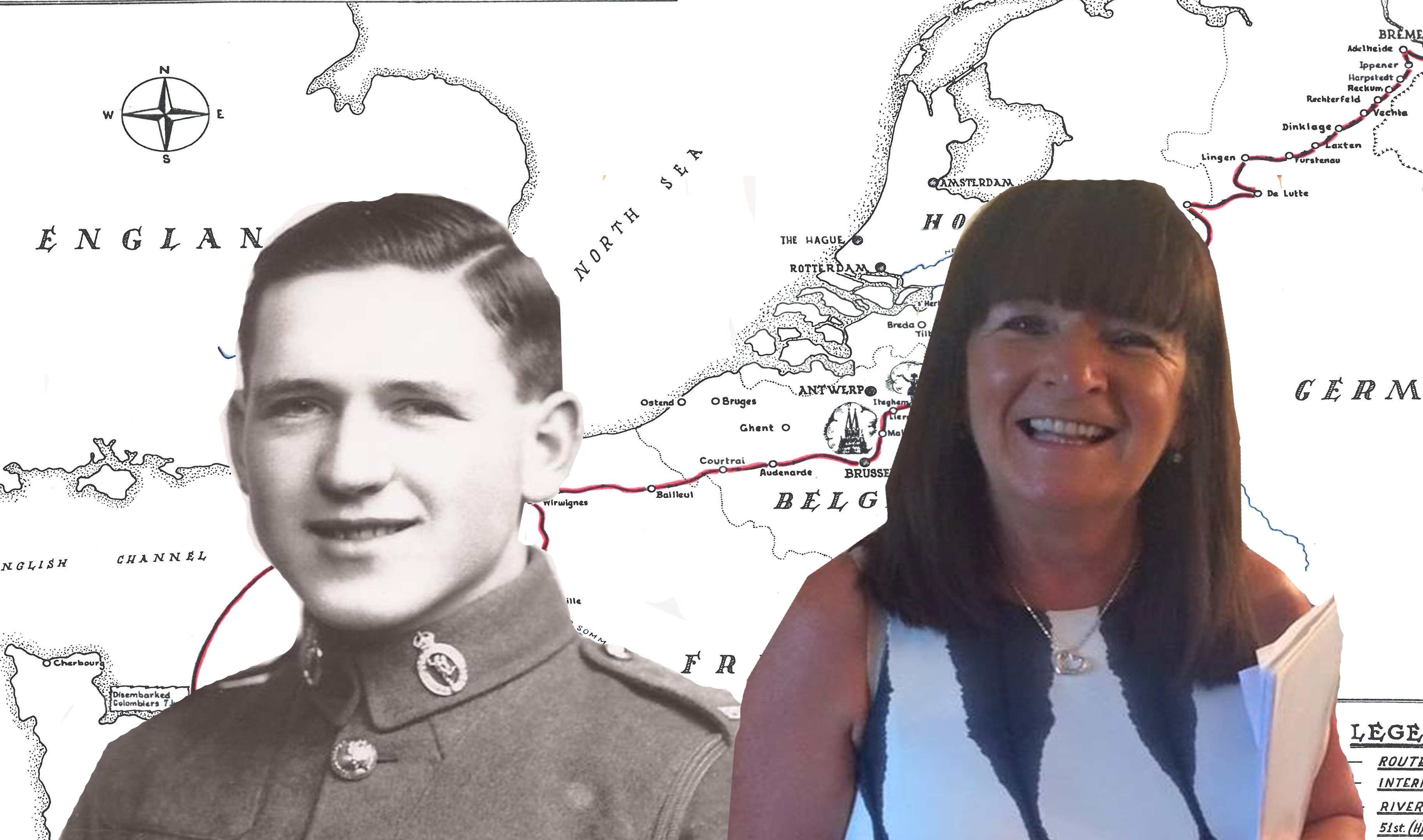
WHEN Isobel McRorie decided to retrace the footsteps her father took during the Second World War, she couldn’t have anticipated the impact it would have on her life.
John McRorie passed away in June 1995, a month short of his 74th birthday.
Just weeks earlier, Isobel had marvelled at the medals he wore at a reunion of the 51st Highland Division to celebrate 50 years since the end of the war.
Isobel said: “When I saw my dad wearing his medals that day, I vowed I would sit and chat with him, have a wee dram or two and find out all about his time in the army. But he died and I deeply regretted not asking where he went and what he did.
“All this knowledge had died with him, so I decided to try and work out where he’d been from his old army records.”
Three years ago, Isobel set off to fill in the gaps and document the holes in her family history.
She followed the route her father and the 51st Highland Division had taken between July 1944 and July 1945 through north-west Europe, taking in France, Belgium, Holland and Germany. The 6590-mile journey is laid bare in a new book written by Isobel.
In December 1945, John McRorie had returned to celebrate Christmas with his family in Bannockburn in peace time.
The war was over and John was about to rebuild his life in the family bakery and marry his wartime sweetheart, Margaret Asher.
Isobel smiled: “Margaret was my mum. Like many families, I never asked my dad about the war and he never really spoke about it.”
As the couple’s children Anne, Liz and Isobel grew to adults, Isobel’s thoughts turned to her own father’s rites of passage.
She said: “My dad was a popular man, handsome, great fun and well known. But there was so much I didn’t know and I regretted that because if I didn’t do something about it, all that family history would be gone.”
Isobel, 61, of Denny near Falkirk, and her partner Bruce Booth decided to retrace the war veteran’s journey in three stages, take part in D-Day anniversary celebrations, and gather enough material to write an account of John’s life during the war. She said: “We did the journey in three parts.
“In June 2014, we left for France and the anniversary of D-Day.
“We took maps and research material and drove to Tilbury Docks in Essex which is where my dad had left from but we had to do the journey via Calais.
“As we approached France and I saw the beaches, I welled up. What was going on in my dad’s mind when he made the same journey 70 years earlier? Did it cross his mind he might not come back?
“We managed to visit about five town and villages where my dad had been on the first day. And on June 6, we were on Sword Beach.”
On D-Day, five beaches on the Normandy coast has been coded for allied attacks – Utah, Omaha, Gold, Juno and Sword Beach.
A total of 28,840 men landed at Sword Beach – and 683 never made it home.
Isobel said: “We covered as much as we could in the surrounding areas in about five days then we had to come home for work.
“I’m sure shares in Kleenex must have soared with the tears I cried. It was very emotional.”
The second part of Isobel’s journey in September 2014, saw them back in France then driving through Belgium and Holland.
Meanwhile, in the final part of their mission in May 2015, she celebrated VE Day in the liberated town of Ebersdorf in Germany.
Isobel said: “This is where my dad and the 51st Highland Division (Signals) were on VE Day. Again, it was very emotional for me.”
Now that her journey is complete, Isobel has a better understanding of what life during the war was like and how men like her father are truly unsung heroes.
She added: “I suppose, like many people, I’m here because of the war.
“My dad’s pal Willie Asher asked him to pop in and tell his family in Stirling he was okay the next time he was on leave. So he did and met Willie’s sister Margaret. They married and had three daughters. Dad then went on to own a newsagent in Bannockburn.
“But there’s still so much I don’t know and with him no longer here, I’ve been lucky to have been helped by his pals Vic Shearer and of course Willie Asher, who was to become his best man and my uncle.”
Isobel, who is director at Scottish Slimmers, said: “Dad died from heart problems so all proceeds from this book will go to the British Heart Foundation.
“Even after he died, I never asked my mum about the war. There were letters from my dad to her which were to be put in her coffin when she passed, but I would never have opened and read them.
“I wrote this book so my children and grandchildren and every generation thereafter, would know what their grandfather was like.
“We were always a close family, but now I miss my dad more than ever. I can’t tell him what I’ve done and what I discovered – but it was a privilege to make that journey.”
To find out more about John McRorie’s story visit www.facebook.com/theroadsandthemiles
SHORTLY after landing in France, the 51st Highland Division produced its own newsletter called Piobaireachd, which is Gaelic for piping.
The first edition distributed to troops on June 14, 1944, opened with this address from Divisional Commander Bullen-Smith:
THIS is the first daily newssheet to be issued since the Division returned to France.
Four years ago, our Division fought the Germans in France.
Through weight of numbers, overpowering air support and equipment generally, the Germans were then able to oust us, despite every gallant endeavour, from France.
Today the picture is different. The much vaunted Western Wall has been pierced and shattered by the assaulting troops. Already we have been into France, well into France too, for nine days, whereas the Germans said they would defeat the invasion on the beaches.
The Division has played its part, with at first only small forces engaged, in a notable way towards the 2nd Army’s grand achievements. The 5th Black Watch, the first battalion of the Division into action, has covered itself with glory, and the fields of Normandy with dead Germans.
The Gordon Highlanders have had a good fight, and have more than held their own. The Seaforth and Cameron Highlanders were in action, and ready as always to do likewise. Our Gunners, and Machine Gunners, have already fired many shells, bombs and bullets, had many successes and done much sterling work.
And so have all the other units in the Division.
So we have made a start. Not a spectacular start, such as was the Division’s fortune at Alamein, but a brave start nonetheless.
Before us lie hard days and hard fighting. But there is no doubt that our present operations are going well, and that we are making a great contribution to those operations.
Let us go ahead, then, with confidence in ourselves, faith in our cause, and with a grim determination to do our best at all times, so that Germany can quickly be brought to her knees, and the War won.
To all ranks in the Division, I send you my greetings, and the best of good luck. I have absolute confidence in you. So has the Army.
In Africa and Sicily, we showed the world what the sons of Scotland can do. That was nine months ago. We will show it again now.

Enjoy the convenience of having The Sunday Post delivered as a digital ePaper straight to your smartphone, tablet or computer.
Subscribe for only £5.49 a month and enjoy all the benefits of the printed paper as a digital replica.
Subscribe